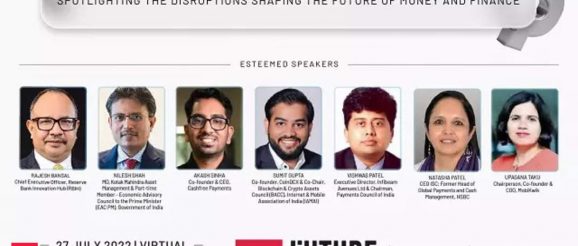SAS acquires Kamakura to propel risk technology innovation as financial sector braces for volatility – The Economic Times

Underscoring SAS’ growth in the domain-specific solutions space, the acquisition will enable SAS to greatly enhance the breadth of its risk solutions portfolio
Mumbai, India (June 28, 2022) – Global AI and analytics leader SAS has acquired Honolulu-based Kamakura Corporation. Privately held Kamakura provides specialized software, data and consulting that helps financial organizations across the spectrum – banks, insurance companies, asset managers, pension funds and more – manage a variety of financial risks.
SAS’ investment decision comes as post-pandemic optimism is shadowed by war, unyielding supply chain disruption, and the end of many pandemic-era financial and social safety-net programs. Rising inflation and recession rumblings have emerged as dark clouds on the global economic horizon, signaling potential turbulence ahead – a time for financial services organizations large and small to closely examine the liquidity risk and other risks in their portfolios.
“This acquisition is an extension of tremendous investments already made in SAS’ cloud-ready risk management platform and integrated solutions,” said SAS co-founder and CEO Jim Goodnight. “It signals our intent to advance market-changing risk solutions to solve the most pressing challenges our financial services customers face. We foresee that the resulting strength of SAS technology, paired with Kamakura’s risk analytics and credit models, will prove far greater than the sum of its parts.”
In acquiring Kamakura, SAS aims to deliver an unparalleled suite of integrated risk solutions, particularly around asset liability management (ALM), and serve additional facets of the financial services industry.
“The synergistic value in the melding of two highly complementary risk technology portfolios is undeniable to anyone familiar with SAS and Kamakura; it’s like joining matching puzzle pieces,” said Sidhartha Dash, Research Director at Chartis. “Merging Kamakura’s strengths – robust ALM and interest rate risk capabilities, proprietary and sophisticated credit models, and risk data – with SAS’ award-winning capabilities in credit risk management and risk and finance integration on SAS® Viya® is a powerful combination for solutions across the entire balance sheet.”
A singular vision
Kamakura is known for its pioneering vision and quantitative rigor. For more than three decades, it has specialized in software and risk management data for the banking and insurance sectors, currently delivered through two offerings:
• Kamakura Risk Manager (KRM). KRM is among the most advanced, fully integrated risk management systems for ALM on the market. The software offers transaction-level valuation, simulation, stress testing and cashflow analysis.
• Kamakura Risk Information Services (KRIS). This cloud-based software as a service (SaaS) offering is a subscription data service that provides credit risk data and analytics that help companies and countries forecast credit spreads and calculate default probabilities based on proprietary models.
The acquisition will bring these solutions’ capabilities into the SAS fold, along with Kamakura’s executives, leadership team, employees and contractors – a noteworthy accumulation of specialized quantitative risk expertise that would take years to assemble in today’s market.
Two sides of the same coin
Kamakura specifically chose SAS over other potential acquisition suitors based on alignment in the companies’ data-driven, research-oriented cultures and their mutual excellence in modeling and analytics, according to Kamakura Chairman and CEO Don van Deventer, who founded the company in 1990.
SAS and Kamakura share the same philosophy, he said: that successfully managing financial risk, while optimizing returns and meeting regulatory requirements, demands industry-leading research, sound analytics, fully integrated applications, flawless execution, and quantifiable results.
“Joining the SAS family represents an exciting new chapter in Kamakura’s 32-year history,” said van Deventer. “In combination, our like cultures will produce synergies that fuel customer and marketplace innovation. More concretely, adding SAS’ cloud-native Viya technology, risk domain capabilities and intuitive, user-friendly interfaces to Kamakura’s IP will spawn a top-tier, market-changing ALM offering.”
Alongside van Deventer, an acclaimed author of four risk books, Kamakura’s executive leadership team includes Research Director Robert Jarrow, renowned in the quantitative risk field for co-creating two prominent risk modeling frameworks: the Heath-Jarrow-Morton interest rate model and the Jarrow-Turnbull reduced-form credit risk model. Both van Deventer and Jarrow, along with Kamakura COO Martin Zorn, will join SAS to help facilitate the transition and lead the development of future-forward ALM and integrated balance sheet offerings and other risk solution advances.
“The fragmented and siloed ways financial organizations have traditionally done asset liability and balance sheet management are becoming cost-prohibitive and unsustainable,” said Troy Haines, Senior Vice President and Head of Risk Research and Quantitative Solutions at SAS. “Augmenting and combining SAS’ decades-long expertise in risk management and finance solutions with Kamakura’s advanced capabilities in ALM will better support the industry’s computationally heavy regulatory risk burdens and promote data-driven decisioning.”
About SAS
SAS is the leader in analytics. Through innovative software and services, SAS empowers and inspires customers around the world to transform data into intelligence. SAS gives you THE POWER TO KNOW®.
SAS and all other SAS Institute Inc. product or service names are registered trademarks or trademarks of SAS Institute Inc. in the USA and other countries. ® indicates USA registration. Other brand and product names are trademarks of their respective companies. Copyright © 2022 SAS Institute Inc. All rights reserved.
Editorial Contact:
Danielle M. Bates
Disclaimer: Content Produced by SAS Institute (India) Pvt Ltd
